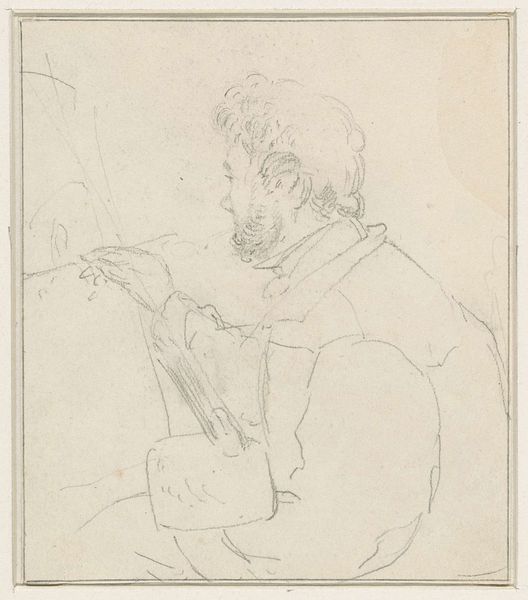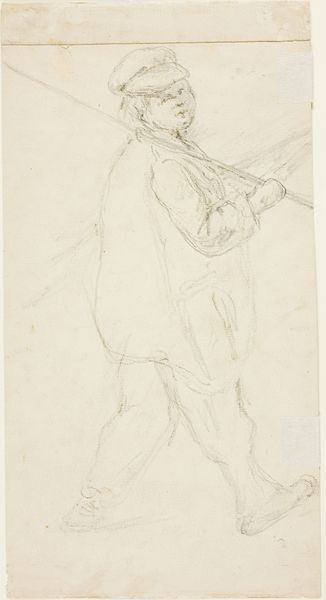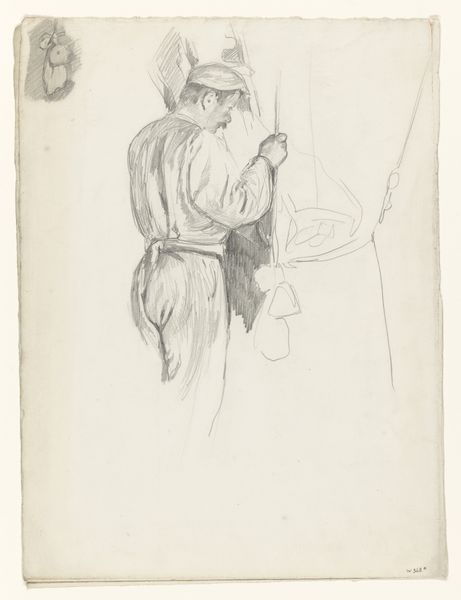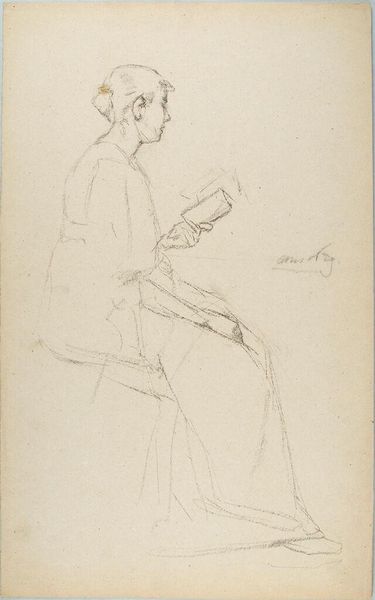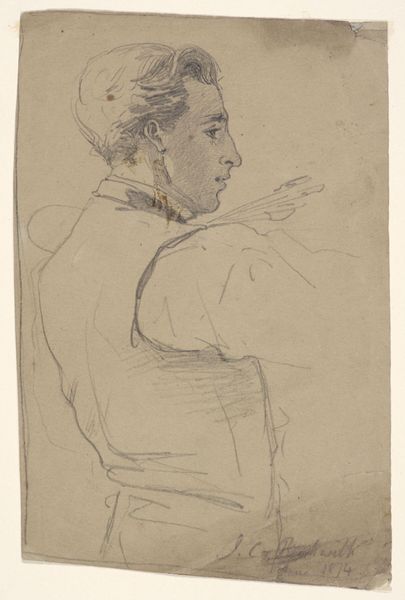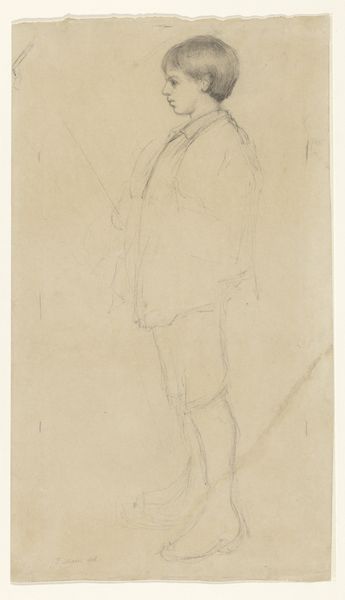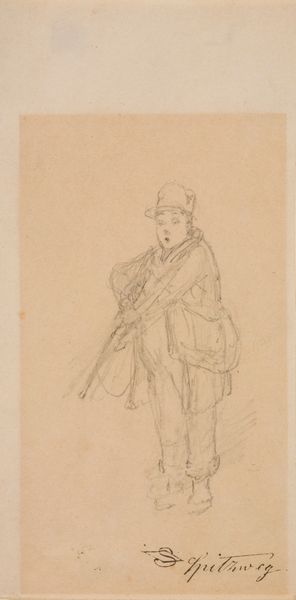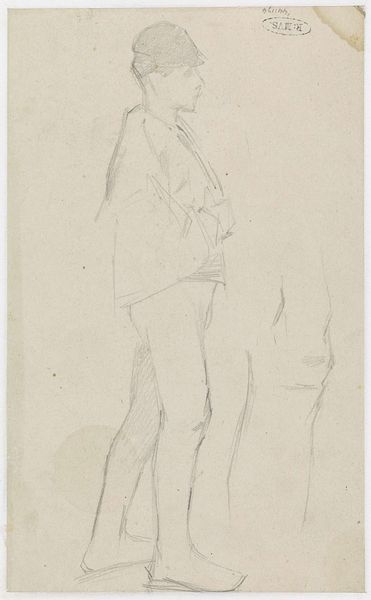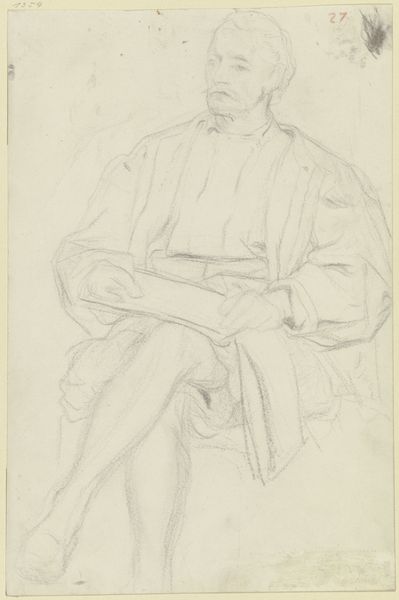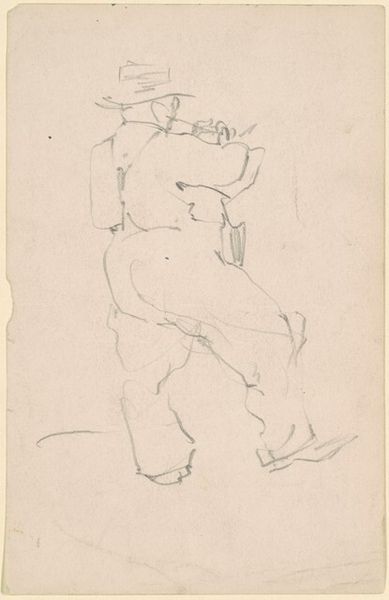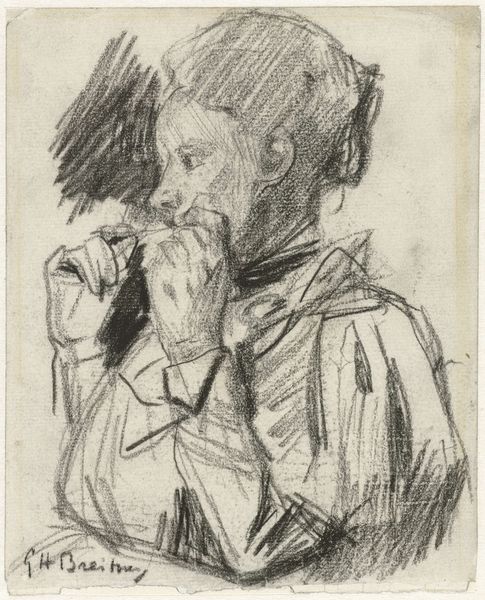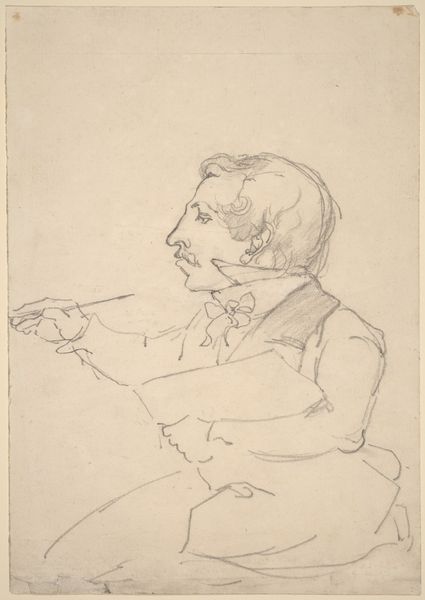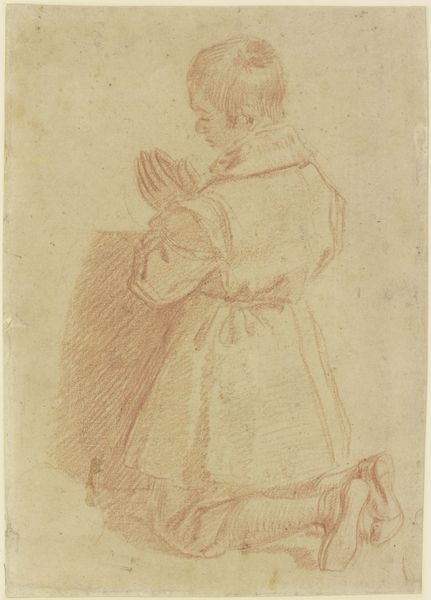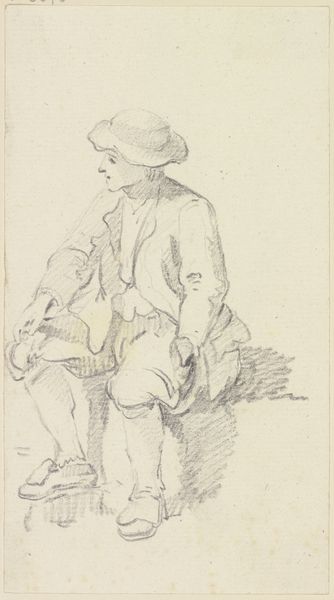
drawing, pencil
#
portrait
#
drawing
#
pencil sketch
#
figuration
#
pencil
#
realism
Dimensions: height 180 mm, width 126 mm
Copyright: Rijks Museum: Open Domain
Editor: This drawing, "Vioolspelende vrouw," or "Woman Playing Violin," by Jozef Israëls, sketched sometime between 1834 and 1911, is deceptively simple. Just a pencil on paper, but it has such an ethereal quality. What do you make of it? Curator: As a materialist, I’m drawn to consider the very nature of the materials themselves. Look at the pencil strokes – how does the artist leverage the humble pencil to create not just an image, but an impression? We must ask ourselves about the availability and cost of the materials themselves and how that influences who gets to create and whose stories are told through art. Editor: That's a different way of looking at it! I was focusing on the figure herself. Curator: Precisely. But what does it mean to depict this woman? A violin wasn't exactly a common instrument amongst the working class at the time. Was this about accessibility, class? I see not just a drawing, but a representation of labor, of a society stratified by access to education and art-making tools. The very paper itself would have been manufactured, distributed… Each step leaves a trace of its origin. Editor: So, even a seemingly straightforward drawing carries complex social information? Curator: Absolutely. It's easy to get caught up in the aesthetics, but we must constantly ask: Who had the privilege to create? And how does the art itself reflect the world of material conditions in which it was made? The woman and her instrument may only tell a small piece of the story. Editor: That gives me so much to consider when looking at drawings. It really expands how I’ll approach other artworks, too! Curator: Indeed, always question what it took to make it and for what reason.
Comments
No comments
Be the first to comment and join the conversation on the ultimate creative platform.
